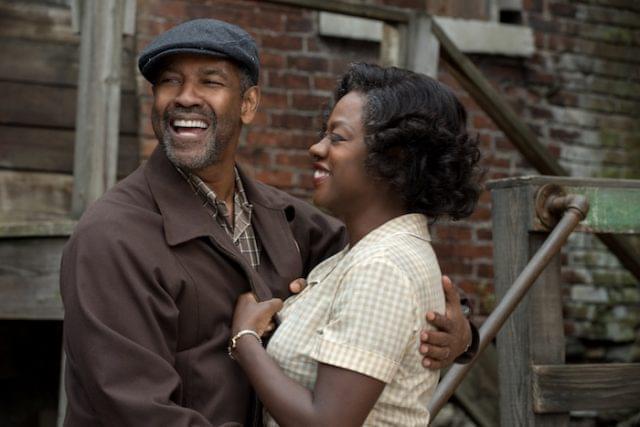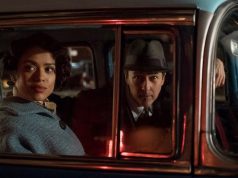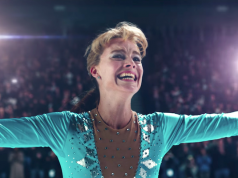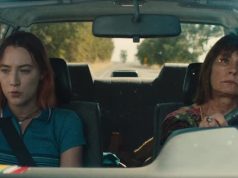
As any seasoned pro will tell you, there’s a difference between stage acting and movie acting. In the theater, your performance must reach every seat in the house, your physical gestures big enough to be seen from the back row. Film, with close-ups and other devices to guide the viewer’s attention, allows for subtler performances and quieter nuances.
Many movie versions of plays suffer in the transition, but not “Fences.” Rather than tamp those emotions down into something more “cinematic,” the cast maintains the grand, expansive energy that was presumably on display when they revived it, to great critical and popular acclaim, on Broadway in 2010. (The original production, with James Earl Jones and Mary Alice, was in 1987.) This is capital-A Acting — not hammy, not over the top, just big. As a viewer, you may need to recalibrate your sensors, lest the intensity read as melodrama.
Denzel Washington and Viola Davis reprise their Tony-winning roles in August Wilson’s Pulitzer-winning play, with Washington also taking over as director. They are Troy and Rose, a fractured but passionate married couple leading a typically rough working-class existence in Pittsburgh in 1957. Troy once had promise as a baseball player — how much promise, and where the blame lies for his lack of success, are matters of dispute — but now, at 53, he’s a garrulous garbageman who uses a lot of baseball metaphors when he talks. A born storyteller and exaggerator (he’s compared to Uncle Remus), Troy holds court in his backyard on a Friday evening, sharing a bottle of gin with his faithful sidekick, Bono (Stephen McKinley Henderson), alternately tickling and exasperating Rose with his discursive ramblings.
The actual plot is slight, and it’s woven into the dialogue seamlessly, as if Wilson were trying to hide it. We learn more about Troy and Rose not through exposition but by hanging out with them. We learn that Troy’s brother, Gabriel (Mykelti Williamson), got “half his head blown off” in World War II, leaving him mentally incompetent but providing Troy and Rose with enough settlement money to buy a house. We learn that Troy has an adult son, Lyons (Russell Hornsby), from a previous relationship, and that he’s often in search of a handout. We learn that Troy and Rose have a 17-year-old son together, Cory (Jovan Adepo), whom Troy nurtures with the same tough love that his own father, an illiterate sharecropper, used on him.
Troy has emulated his father in other ways, too, including unsavory ones, which is where the story’s conflicts arise. He’s a larger-than-life character with a personality that takes up a lot of space — it’s hard to imagine him not being the center of attention in any room he’s in — and Washington’s performance is appropriately riveting, charismatic, and lively. Troy is almost incapable of seeing his own flaws, but Washington makes sure they don’t escape our notice. Meanwhile, Davis embodies the impact of those flaws on Troy’s loved ones, giving an aching, soulful performance that is the perfect complement to Washington’s bombast.
There’s a lot to unpack about this family’s past, present, and future, and the cast (all but Cory from the Broadway production) is uniformly good. The characters’ lives feel rich with history and authentic sorrow, their interactions plucked from a heightened version of real life. August Wilson died in 2005, long before his dream of seeing his play on the big screen could be fulfilled, but he’s still credited as the screenplay’s sole author. (What little adapting it needed was done by Tony Kushner, who got a co-producer credit instead.) I suspect Wilson would be pleased with Washington’s smooth, hot-blooded handling of it, unapologetically putting all those fiery emotions out there for the whole world to see.
B+ (2 hrs., 18 min.; )





